Families of the future
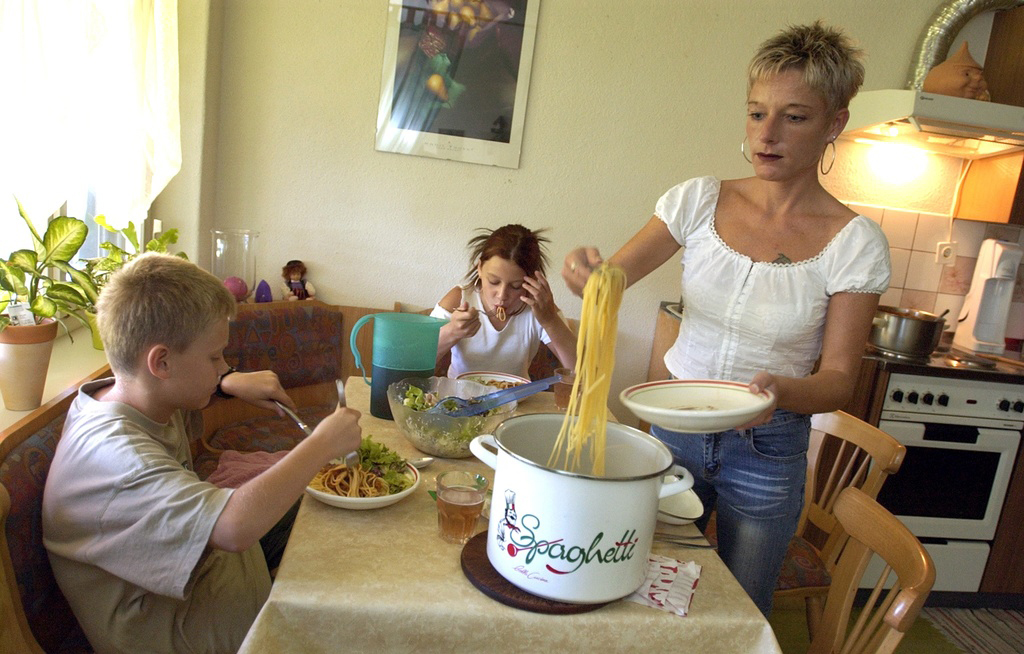
In Switzerland as in England, where Zoë Jenny lives, the divorce rate is around 50 per cent.
“Today the single parent household is almost the norm. A direct result of the high divorce rates of the last 20 years is the “patchwork” family where children from previous marriages are brought into new relationships,” writes Jenny, who was brought up by her father in a one-parent home.
“It requires a whole village to raise a child”. This old African proverb reflects the fact that to raise a child demands more energy than one person alone can possibly manage. Today that “village” is a network of nursery, family and friends. Despite that, many parents don’t get the help they need and are struggling to balance a career and the upbringing of their children.
This is especially true in a time where the one-parent household has become commonplace. In Switzerland 400,000 children live in a one-parent household. Although the number of single fathers has increased, it is still largely the mothers who take responsibility for their child’s upbringing, often raising their children in very difficult financial circumstances.
Single parents are socially and financially highly vulnerable. In the eighties, single dads were still very unusual – it was almost a curiosity if a child was growing up with its father.
Kramer versus Kramer
As a child who grew up with her father I remember vividly the disbelief in the eyes of other children and their parents when I told them that I lived with my father. We were clearly a minority. Nowadays a child being raised by its father alone is more likely to have the opportunity to meet another child in the same situation and share its experience.
This is so important as there is nothing worse for a child than to feel abnormal or excluded. In the 1979 film Kramer versus Kramer, Dustin Hoffmann plays a father who has to look after his son as his wife, who suffers a deep identity crisis, leaves the family for good. His life becomes a daily struggle to keep everything afloat.
This rather authentic account of the stresses of single parenthood has become a “divorce drama” classic as it reflects in a poignant way the breakdown of the traditional family. It captured the societal mood at a time when single parents had little hope of support.
Today the single parent household is almost the norm. A direct result of the high divorce rates of the last 20 years is the “patchwork” family where children from previous marriages are brought into new relationships.
Same-sex families
A more recent phenomenon is the family where two same sex parents raise a child together as portrayed in the film The Kids Are Alright, where a lesbian couple conceive with the help of a sperm donor. Such gay families are still controversial, although several studies have suggested that children from same sex families are not at all disadvantaged.
The American actress Julianne Moore, who plays one of the lesbian mothers in the film, explained in a recent interview with the BBC that while it was important to have two parents, it doesn’t really matter whether those parents were gay or straight.
It seems of much greater importance that the parents are reliable and a constant presence so that the child feels safe and loved. In the end it’s the quality of the relationship that counts.
Psychological impact
From a psychological point of view, there is little doubt that a child growing up in a traditional family where the parents constantly fight is ultimately unhappier than a child in a same-sex family where the parents are peaceful, loving and caring.
Surely, many more studies will have to be done to see what the impact of same sex parents is on children is but the more there are the more “normal” it will become. One thing is certain, society is changing fast and with it the structures of families.
People live more diverse lifestyles than ever before, there is not one formula that fits all and children will always be raised in many different ways.
Many Swiss authors have been drawn to live elsewhere in the wide world. Their writings give us a better understanding of unfamiliar places.
swissinfo.ch has invited a number of authors, some well known and some not so well known, to share their observations of their adopted countries.
The opinions expressed by guest author contributors are theirs alone, and do not necessarily reflect the editorial line of swissinfo.ch.
Born in Basel, grew up in Basel, Greece and Ticino.
Since 1993 has had short stories published in literary magazines in Switzerland, German and Austria.
Made her name with her first novel, The Pollen Room (1997), translated into 27 languages.
Since 2003 she has lived in London with her partner, and later husband. She has one daughter.

In compliance with the JTI standards
More: SWI swissinfo.ch certified by the Journalism Trust Initiative
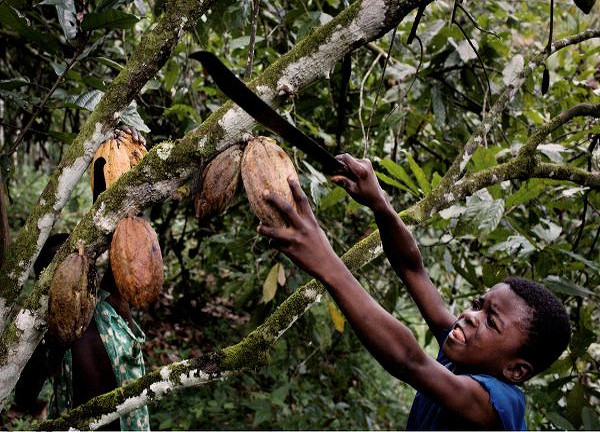
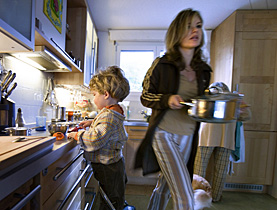
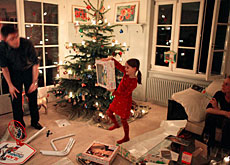
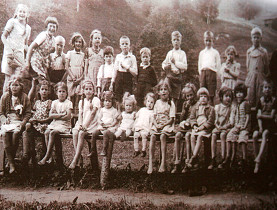
You can find an overview of ongoing debates with our journalists here. Please join us!
If you want to start a conversation about a topic raised in this article or want to report factual errors, email us at english@swissinfo.ch.